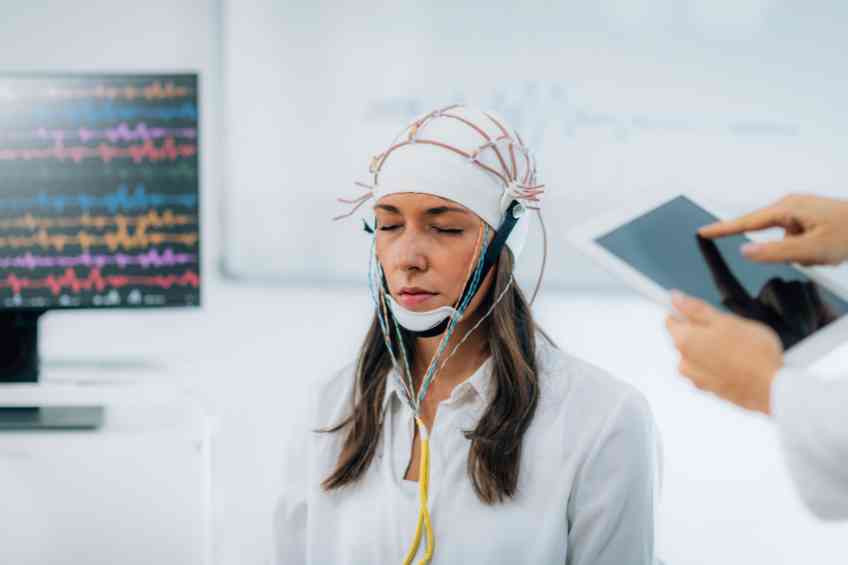By John Hand –
The human brain is one of the most complex and unique pieces of machinery on Earth. It allows people to think, feel and process the world. The labyrinth of lobes, neurons and cortexes is also imperfect. As a result, some people deal with issues such as anxiety or depression. Beyond this, the brain wears down over time, creating problems like short-term memory loss, dementia or Alzheimer’s.
In recent years, some scientists have gravitated toward electronic brain zapping to improve overall mental health, reduce depression and decrease the chances of getting cognitive diseases. Admittedly, the research on this treatment is still relatively new and short of giving the practice a full-throated endorsement. But this hasn’t stopped or even slowed down the market for products that allow people to zap their brains right at home—a treatment that is met with mixed enthusiasm from medical professionals.
These zaps occur when the brain’s neurotransmitters are altered. One study from the University of New Mexico purposely sent an electric current to the brain of 42 people between 60 and 70 years old. The researchers found that those receiving the shock had an enhanced ability to identify changing images while also improving their ability to memorize words. Furthermore, their test performance was like people in their 20s, who have younger, more effective brains.
“It’s an unfortunate fact of life that as we age, we all become a little more forgetful,” the study’s author Dr. Robert Reinhart, a Boston University neuroscientist, told NBC News. “Memory deficits impair our activities of daily living, planning, decision making, cognition, learning, and that can generally have a negative effect of diminishing quality of life.”
This inevitability is why the reported positive impact on memory is so important. Brain zapping, however, may also have a positive impact on tremors and depression, according to two separate studies. Both research projects specifically targeted areas of the brain thought to be associated with depression and tremors. Both projects yielded positive results for controlling these issues, giving the promise of possible relief and alternative medical treatments to people who have spent years dealing with depression or tremors.
The enticing promise of brain zapping had encouraged a growing number of people to bring brain zapping into their homes. It is now easily possible with the purchase of a transcranial direct current stimulation or tDCS. Accessible without a prescription, these devices give people the same type of electronic stimulation they would receive in a medical facility or an advanced research project. The at-home zaps come through a cap that can be worn almost anywhere.
tDCS devices range in price from $40 to $500 and come in a variety of sizes. Their popularity has grown in recent years, with one online group boasting a population of more than 16,000 people. Despite the growing interest, there is concern over the use of electronic shock at home without appropriate medical supervision.
“We are talking about injecting electricity into someone’s brain. Someone could get hurt,” Reinhart said. “We need to better understand what these tools can do, including any unintended consequences they may have.”
Science is still developing, but the practice does offer the possibility of a new way to improve cognitive health. Granted, it may seem unconventional to send electronic waves into a person’s brain, but related research has been encouraging. Still, it’s unclear if zapping in the privacy of a person’s home is the right way to go.













